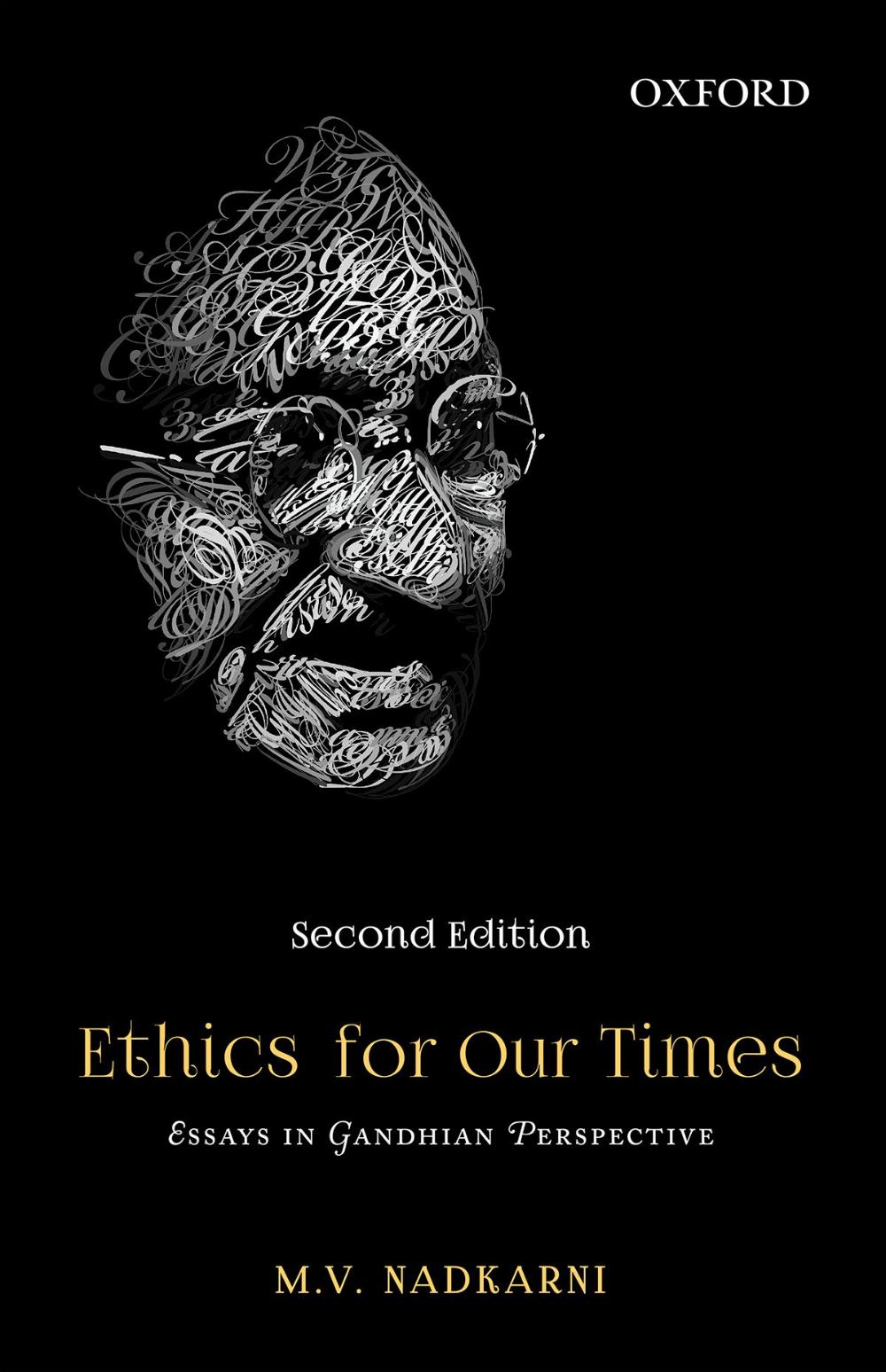Prof. M.V. Nadkarni
on Economics, Ethics, Environment, Gandhi, and Religion
Dr. M.V. Nadkarni (Mangesh Venkatesh Nadkarni), born on February 23, 1939, an economist by training and profession, has deep interest in other social sciences as well, as also in religion and philosophy. His contribution to Economics has been mainly in the areas of Agricultural Price Policy, Problems of Drought Prone Areas, Farmers' Movements, Political Economy of Forest Use and Management, Economics of Pollution Control, and Integrating Ethics into Economics
Recent Books

The most interesting of the vast number of Vacanas, or "sayings" from the Siva Saranas of medieval Karnataka are translated and made acessible in one place.
Sāmājika Nīti-Kāvya Gucchah contains five śatakams (sets of hundred verses) on social ethics, inspired by the ancient Sanskrit poet, Bhartṛhari's Niti-śatakam.

This book offers a new concept of inclusion of the marginalised in India — the Broad-basing Process.
This book provides a vantage point of comparison, of the actual reality of decentralisation in India with Gandhi’s vision of decentralised democracy, or what he referred to as Gram Swaraj.
Published earlier in 2011, this book now appears in its second and enlarged edition in 2014, published by Oxford University Press, New Delhi. The second edition has an added Part IV on ‘Some Contemporary Concerns’.

What is the Bhagavad-Gita? Is it just a religious text? When was it composed? How relevant is it to the modern
world?
Hinduism is much misunderstood, not only by non-Hindus, but also by Hindus themselves. It has been tried to be defined in terms of purity and pollution, caste hierarchy, Brahminism, idolatry, ritualism, cow-worship, other-worldliness and amorality! That is, anything which Hinduism is not. Some have even doubts if it is a religion at all!
A drastically curtailed version of this article without the supporting tables appeared in The Economic Times dated 20 January, 2018
Delivered at the 15th Prof. LS Venkataramanan Memorial Lecture
Journal of Social and Economic Development April 2015, Volume 17, Issue 1, pp 90-103
Gandhi and Globalization [2008]
Presented at the panel discussion in the national seminar on Globalization and the Management of Vulnerabilities at ISEC, Bangalore
Agricultural Policy in India [1993]
Contexts, Issues and Instruments, Dept of Economic Analysis & Policy, Reserve Bank of India
Vicissitudes of Agriculture in the Fast Growing Indian Economy: Challenges, Strategies and the Way Forward, edited by C Ramasamy and K R Ashok, 2016
Nitte Management Review, Vol 9 Issue 1 Year 2015
Founder's Day Lecture at CMDR, Dharwad
Green Economy and Poverty [2013]
Lecture at the Seminar on ‘Green Economy: Policy and Challenges’ at ISEC, Bangalore
Presidential Address at the 55th Annual Conference of the Indian Society of Agricultural Economics
Published in Economic and Political Weekly
Select Papers
A drastically curtailed version of this article without the supporting tables appeared in The Economic Times dated 20 January, 2018
Delivered at the 15th Prof. LS Venkataramanan Memorial Lecture
Vicissitudes of Agriculture in the Fast Growing Indian Economy: Challenges, Strategies and the Way Forward, edited by C Ramasamy and K R Ashok, 2016
Nitte Management Review, Vol 9 Issue 1 Year 2015
Journal of Social and Economic Development April 2015, Volume 17, Issue 1, pp 90-103
Founder's Day Lecture at CMDR, Dharwad
Hindu Economic Philosophy [2013]
Green Economy and Poverty [2013]
Lecture at the Seminar on ‘Green Economy: Policy and Challenges’ at ISEC, Bangalore
Presented at the panel discussion in the national seminar on Globalization and the Management of Vulnerabilities at ISEC, Bangalore
Published in Economic and Political Weekly
Presidential Address at the 55th Annual Conference of the Indian Society of Agricultural Economics
Contexts, Issues and Instruments, Dept of Economic Analysis & Policy, Reserve Bank of India